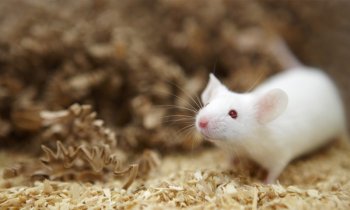My contention in a Nutshell is that animal testing/ experiment on animals has more positives than negatives. The records go back to around 500 BC when the animal testing was put to use and since then, millions of animals are used every year for scientific research and commercial testing. Therefore, to strike a perfect balance between the rights of animals and their use in Medical Research has now become a delicate issue with huge societal assumptions and ethical issues.
There is a need for further developing scientific research in the present era given the high demand and ongoing advanced research in the fields of health and medicine, for the treatment of various diseases. Some supporters and advocates of animal rights and welfare believe that everything was created equal and humans do not have any right to deprive animals of their lives. Organisations such as PETA are highly vocal about any issue pertaining to animals.
For instance, in the 1880s, Louis Pasteur convincingly demonstrated the germ theory of medicine by inducing anthrax in sheep. In another instance, Insulin was first isolated from dogs and restructured the treatment of diabetes. Also worth mentioning in this context is that, Influenza caused an estimated twenty million deaths during the International Pandemic (1918) and it was finally brought under control during the World War II by vaccines developed using laboratory animals. It can be worth mentioned that there is a negligible chance of finding satisfying substitutions for animals, as even a sophisticated computer and numerous computer programs are unable to depict interactions between molecules, cells, tissues and organs. Hence, animal studies become necessary under this juncture.
Animals are mainly used for experiments during pre-clinical studies because they are similar to human either in behavior or in cell structure. In many Countries, Animal Research Labs are controlled by a Code of Practice. The Committee carefully decides whether or not an experiment can be conducted and in this manner, a number of animals are prevented from being treated in an inhuman way.
Everyone will definitely agree that if a ban on animal experiments/testing happens, then it is almost impossible to bring a new drug into the market directly for human usage, without no proper precautions.
It is safe to conclude that, it would be barbaric to test new drugs on people or children, or to let people die because there was not enough information about a particular drug.
In India, Animal experimentation is overseen by the Committee for the Control and Supervision of Experiments on Animals (CPCSEA), a committee formed for this purpose under the Prevention of Cruelty to Animals Act, 1960. A Chennai-based company, Blue Cross of India has even developed a software-based alternative method, titled as “Compu Series”, which allow students to digitally dissect all laboratory animals.
In conclusion, I do feel animals should be used for scientific experiments since we have strict regulations which ensure that the animals are in safe hands, handled efficiently and not treated inhumanely.
While the debate on whether animals must be tested upon or not goes on, all we can do is wait and watch. However, even if testing on animals is not permitted, there is still a lot that can be experimented and found in the area of drugs and medications. And, if you are passionate about such findings and want to build a career in the subject, you will need the right kind of training. Avigna Clinical Research Institute provides just the right clinical research online training in Bangalore that involves a curriculum incorporating drug development, pre-clinical studies, pharmacology, clinical trials, data management, anatomy, physiology, and much more. And, you can learn all of this and gain a certificate while learning online from the comfort of your home, without compromising on your job or responsibilities.




